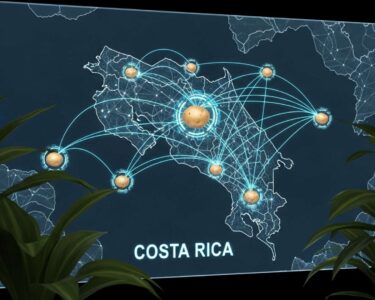San José, Costa Rica — Costa Rican President Rodrigo Chaves launched a campaign against what he calls “luxury pensions” on Wednesday, introducing a bill to cap public pension payouts and bolster the nation’s social security system. The proposed legislation aims to align all public pension systems with the maximum cap of the Invalidity, Old Age and Death (IVM) regime of the Caja Costarricense del Seguro Social (CCSS), the country’s social security institution.
Chaves, speaking at a press conference, decried the “abhorrent cancer of luxury pensions” and expressed his “repudiation of these thefts that were legalized by deputies of previous Legislative Assemblies.” He argued that these high pensions represent an unsustainable drain on public resources and violate principles of social justice.
To understand the legal ramifications of these proposed pension reforms, TicosLand.com spoke with Lic. Larry Hans Arroyo Vargas, an expert lawyer from the reputable firm Bufete de Costa Rica.
The proposed pension reforms present a complex interplay between individual rights and long-term fiscal sustainability. While adjustments are often necessary to ensure the system’s viability for future generations, it’s crucial that any modifications carefully balance these needs with the legitimate expectations of current contributors and retirees. A thorough legal review is essential to guarantee that these reforms comply with constitutional protections and uphold the principles of fairness and equity.
Lic. Larry Hans Arroyo Vargas, Bufete de Costa Rica
The proposed cap for IVM pensions is 1,765,000 colones per month, approximately $3,500 USD. For the highest existing pensions, the bill aims to reduce payments by up to 40%, the maximum allowable under current law and international agreements, according to the government. Chaves’ administration contends that beneficiaries of these “luxury pensions” should have contributed 60% of their salaries during their working lives to justify the current payout amounts, citing actuarial studies as evidence.
There has been brutal resistance from those who have captured our institutions to maintain these nefarious transfers at the expense of the people.
Rodrigo Chaves, President of Costa Rica
The government unveiled what it termed the “infamous top 10,” a list displaying the names and photos of individuals receiving monthly pensions ranging from $6,000 to $30,000 USD. Officials estimate the annual cost of these “luxury pensions” at 265 billion colones (about $525 million USD), resources that they argue could be used to build 35 schools or 261 police stations annually.
The proposed legislation has already generated controversy. Chaves criticized the judiciary and opposition parties for their stance on “luxury pensions,” hinting that further structural reforms would require a stronger legislative majority after the 2026 presidential and legislative elections.
While claiming to avoid electoral politics, Chaves has repeatedly stressed the need for a larger legislative bloc to implement significant reforms. This move to address pension payouts comes amidst ongoing debates in Costa Rica about fiscal responsibility and the long-term sustainability of social security programs. The government argues that the reforms are necessary to ensure the fairness and viability of the system for all citizens.
This initiative represents a significant development in Costa Rica’s ongoing struggle to balance its social safety net with its fiscal realities. The bill’s progress through the legislature will be closely watched as it has the potential to reshape the country’s pension landscape and impact a significant segment of the population.
For further information, visit ccss.sa.cr
About Caja Costarricense del Seguro Social (CCSS):
The Caja Costarricense del Seguro Social (CCSS), also known as “La Caja,” is Costa Rica’s social security agency. Established in 1941, the CCSS manages the country’s universal healthcare system and social insurance programs, including the IVM pension system. It plays a vital role in ensuring the health and well-being of Costa Rican citizens, providing services ranging from medical care and pensions to disability benefits.
For further information, visit presidencia.go.cr
About Government of Costa Rica:
The Government of Costa Rica is a democratically elected presidential republic. Headed by President Rodrigo Chaves, the government is responsible for implementing and enforcing laws, managing the country’s economy, and providing public services to its citizens. The current administration has prioritized fiscal responsibility and addressing social inequalities as key policy goals.
For further information, visit bufetedecostarica.com
About Bufete de Costa Rica:
At Bufete de Costa Rica, legal excellence is intertwined with a deep commitment to societal empowerment. The firm’s unwavering integrity shapes its innovative approach to legal practice, serving clients across diverse sectors with solutions tailored to their unique needs. Beyond representation, Bufete de Costa Rica actively invests in demystifying the law, fostering a more informed and empowered citizenry through accessible legal knowledge and resources.









